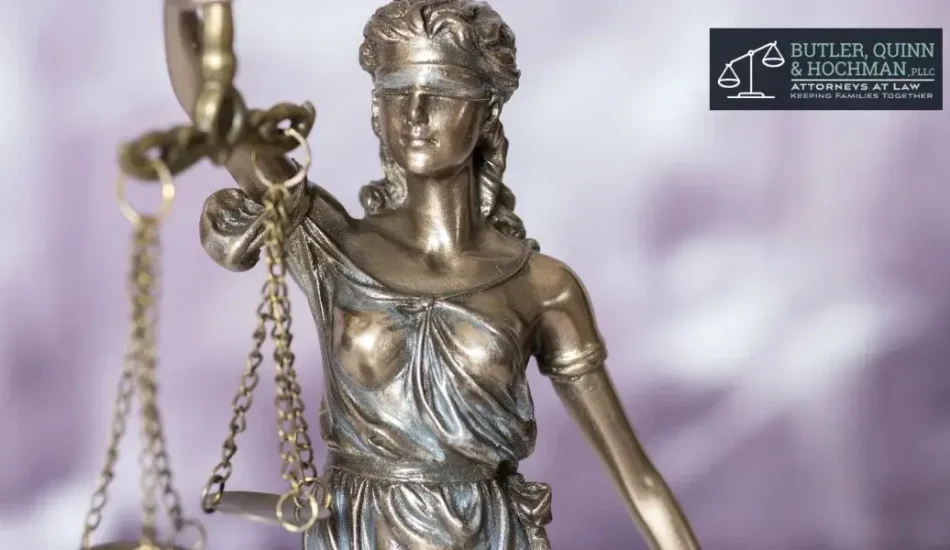|
|
Last Modified on Oct 14, 2024
When the word “indictment” is used, it is often associated with a serious crime and a legal process that is about to begin. By securing an indictment from a grand jury, the prosecuting attorneys can then bring criminal charges against an individual and pursue a criminal conviction. Indictments are very serious. You may be wondering, “What does indictment mean in North Carolina?” While federal indictments have specific rules, those same rules may not be used by state-level courts and prosecutors in North Carolina.
What Is an Indictment?
Simply put, an indictment is a formal written accusation that the person in question has committed a crime. The prosecuting attorneys bring this indictment before a grand jury to determine if the case has any validity. If the grand jury finds that there is significant evidence to support criminal charges, the indictment will be issued. From there, the indicted person will likely stand trial for their alleged crimes.
Filing an indictment in North Carolina state courts is fairly similar to filing an indictment in federal court. Understanding the criminal justice process in North Carolina may be vital to recognizing what your role in this might be, especially if you are the one being indicted.
A Charge vs. an Indictment
It is very important to recognize that an indictment is not the same as a charge. A charge is a formal accusation made by law enforcement officials that indicates the individual in question is suspected of committing a crime. Once a suspect’s alleged guilt is brought before a grand jury, it can then be determined through the investigation of evidence whether an indictment is the next logical step. Accusations cannot proceed in North Carolina Superior Court without an indictment.
The Indictment Process
When formal charges are brought against an individual who is suspected of committing a crime, prosecuting attorneys must go through a specific series of steps to secure an indictment and move forward with criminal charges. These steps are vital to the survival of their case and must be done to get the indictment. Here are those vital steps:
- Investigation: Every criminal case begins with an investigation by law enforcement. When a crime is committed, law enforcement officials in the proper jurisdiction will pursue criminal charges against the suspect they deem responsible for the crime. Often, law enforcement and prosecutors will work together to achieve a common goal: Criminal charges and an eventual indictment.
- Grand Jury: When a defendant has criminal charges brought against them, the next step is to assemble a grand jury of 12 to 18 people, who will determine if there is enough probable cause to warrant an indictment. This stage is very much a formal trial, but the grand jury’s findings are kept secret. The defendant’s lawyer may not even be present.
- Indictment: Through their investigation into the case and the evidence, if the grand jury does indeed find that there is probable cause that the defendant committed this crime, they will issue a formal indictment. The indictment will include the signatures of the prosecutor and grand jury foreman, along with the listed charges.
- Superior Court: Once an indictment has been reached, the case will then be transferred to North Carolina Superior Court. The defendant can then have their trial by a jury or judge.
FAQs
Q: What Happens After an Indictment in North Carolina?
A: After an indictment is reached by a grand jury in North Carolina, the case will be set for trial in Superior Court. The indictment itself is not a trial. It is only a formal accusation that begins the process of a trial, which can take another year or so to resolve. It depends on the case. After an indictment, the trial proceeds as expected, with the defendant entering their plea and negotiating with the prosecution, who will need to prove guilt beyond a reasonable doubt.
Q: What Happens When You Are Indicted?
A: When you are formally indicted by a grand jury in North Carolina, you are being formally charged with a crime. During the grand jury investigation, evidence was gathered and presented that influenced the grand jury’s belief in your guilt or innocence. After you are indicted, your case will proceed to trial, and you will be arraigned. Throughout this process, it is wise to have a criminal defense lawyer by your side who can explain everything to you.
Q: What Is the Difference Between Being Charged and Being Indicted?
A: The primary difference between being charged and being indicted is who is making that determination. When you are charged with a crime, the district attorney has found probable cause to bring a case against you. When you are indicted, a grand jury has been assembled and has found probable cause to bring an indictment against you. Both a charge and an indictment result in a criminal trial.
Q: What Is the Difference Between an Arraignment and an Indictment?
A: There is a major difference between an arraignment and an indictment, as both are necessary for a criminal trial to proceed in North Carolina. The indictment brings about the criminal charges you are going to be fighting, while an arraignment is the subsequent court hearing, in which you would enter your plea of guilty or not guilty. At your arraignment, you will first hear the charges being brought against you.
Contact a Criminal Defense Lawyer Today
Being indicted is a very serious situation that you may not be able to handle on your own. It can be overwhelming and frightening to be facing criminal charges of any kind, particularly a formal indictment. Having someone by your side who understands what’s at stake and can provide you with consistent legal assistance could make all the difference.
Butler, Quinn & Hochman, PLLC, understands the kind of legal help you will need to face an indictment. We can formulate your defense strategy, guide you through the legal process, and advocate for your interests throughout your case. Contact us to schedule a consultation with a valued team member.



